Copyright 2000, 2010 by Jamie Wood and Tara Seefeldt
All rights reserved.
Published in the United States by Celestial Arts, an imprint of the Crown Publishing Group, a division of Random House, Inc., New York.
www.crownpublishing.com
www.tenspeed.com
Celestial Arts and the Celestial Arts colophon are registered trademarks of Random House, Inc.
Library of Congress Cataloging-in-Publication Data
Wood, Jamie.
The Wicca cookbook : recipes, rituals, and lore / Jamie Wood and Tara Seefeldt. 2nd ed.
p. cm.
Includes bibliographical references (2nd ed.) and index.
1. Wicca. 2. CookingReligious aspectsWicca.
3. Religious calendarsWicca. 4. Sabbat. I. Seefeldt, Tara. II. Title.
BP605.W53W66 2010
641.5dc22
2010028309
ISBN 978-1-58761-104-9
eISBN: 978-1-60774-854-0
Second edition
Design by Jeff Puda
v3.1
ACKNOWLEDGMENTS
I would like to thank the Mother for all Her guidance during the process of writing this book and revising it for the second edition. Special thanks to my kids Alethia, Skyler, and Kobe for always being an inspiration. Thank you to my agent Julie Castiglia who believed I could write a book even before I knew I could. I adore you. My gratitude goes out to my editor, Veronica Fuzzy Randall, with whom I have much fun and mischief. I am grateful for the scary and fun experiences since the first edition of this book; they have made me stronger, more confident, and thank the stars, better able to take a joke. So, while I dont fly around on brooms, own thirteen black cats, or have warts on my chin, I do cackle from time to time, believe in the magic of night, the power of dreams, and the love that connects us all.
Bright blessings,
Jamie Wood
I am deeply grateful for the friendship and support of all of those who donated recipes.
High on this list is Terrie Hurt. Her good humor, depth of knowledge, and generous support was amazing and went above and beyond. I especially want to thank my dear friends Dawna Perry and Andy Honker for bravely offering themselves up as taste testers for several recipes. They offered advice and feedback that was invaluable. I would like to thank Beth Luey for her advice, patience, and great sense of humor. I would like to thank my family members who listened patiently to endless discussions about the project. Lastly, of course, I thank my husband, Doug, for being truly himself, a wonderful life partner who has provided unending support, advice, and encouragement in this and all things.
Blessed be,
Tara Seefeldt

INTRODUCTION
 ccording to ancient earth-based traditions, a deep-seated spirituality has always been a part of food preparation. When cooking is combined with a ceremonial significance, it transforms an ordinary task into an extraordinary connection with the Divine Source. Without requiring any commitment to Wicca and its beliefs, The Wicca Cookbook offers ways to celebrate and honor the divinity in nature and each of us.
ccording to ancient earth-based traditions, a deep-seated spirituality has always been a part of food preparation. When cooking is combined with a ceremonial significance, it transforms an ordinary task into an extraordinary connection with the Divine Source. Without requiring any commitment to Wicca and its beliefs, The Wicca Cookbook offers ways to celebrate and honor the divinity in nature and each of us.
Wicca, also known as Witchcraft, the Craft, or simply the Old Religion, is a nature-based religion, close in ideology to Native American and shamanistic traditions. As an earth-centered religion, its origins predate Judaism, Christianity, Islam, Buddhism, and Hinduism. Wicca comes from the Saxon root wicce, loosely translated as wise or to bend or shape the unseen forces. The knowledge of Wicca is derived from the movement of the sun, moon, and stars, and the cycles of the seasons.
No hard and fast rules exist in Wicca. It is not based on a degree or a set of beliefs but rather on a practice of aligning oneself with the natural forces of life. Wiccans honor and celebrate the female energy known as the Goddess in Her triple reflection of the Maiden, Mother, and Crone. Her Consort, the male energy known as the God, Hunter, or Horned One, completes the total being of the Divine Source. Emphasis is placed on personal experience and a tolerance of other paths and lifeways. Wiccans recognize the innate presence of divinity in the natural world, each individual, and the cycle of the seasons.
Within Wicca are eight sabbats, each holding a sacrosanct place on the Great Solar Wheel of the Year, also known as the Mandala of Nature. The sabbats give way to each other like the changing of the seasons. Each sabbat is celebrated with corresponding symbols, traditional foods, herbs, and the ritual invocation of Divine power through the creation of sacred space.
The Wicca Cookbook is divided into these nature-based festivals. Each recipe is preceded with a hallowed meaning, the ingredients therapeutic value, historical significance, or a spell or ritual that you can perform in conjunction with the food preparation. Great value is placed on personal creativity, poetry, and the artful integration of different myths and ritual elements. Therefore, you are encouraged to add to or create a ceremony or meditation that reflects your feelings and understanding.
The recipes include many edible flowers and medicinal herbs, whose use dates back to the Middle Ages and even earlier, when ancient people included them in recipes as well as used them for their healing and medicinal properties. Except for those few that were grown locally, most herbs were quite costly in the Middle Ages and protected with tenacity. Only the lady of the household held the key to the herb cabinet, since the servants were not to be trusted with such a precious commodity. The village midwife held the secrets to the curative uses of the flowers and herbs and the lore was then passed down through the generations.
Meals were heavily spiced to add flavor to otherwise bland food and in an attempt to cover up the unsavory taste of decaying food. Flowers and herbs were also used in dishes to impart both flavor and beneficial medicinal effects. The fragrances and textures of herbs and flowers delighted the senses. Their importance can be seen in the many treatises on gardening that have survived from the Middle Ages. Eighty-six plants are listed in a fifteenth-century treatise on gardening, and the author clearly indicates that he could have added more. Herbs have long been considered essential for a full and happy life.
Each flower and herb possesses unique characteristics that not only enhance the flavor but also add a sacred quality that imparts the Divine in every dish. By inviting Mother Nature into your dishes, you welcome the flow of Divine spirituality. In this cookbook, herbs and flowers from the Mothers garden are used in recipes during sabbats that coincide with their seasonal peak. This alignment increases the spiritual benefit of the recipe and reflects the Universes perfect rhythm. Eating foods at their prescribed times not only offers more nutrients, it also ensures heightened medicinal potency.
You may either grow your own herbs and edible flowers or purchase them. A delightful kitchen herb garden conveys the message of Divine abundance. It reminds one of the wealth that is available to us all in the natural world.


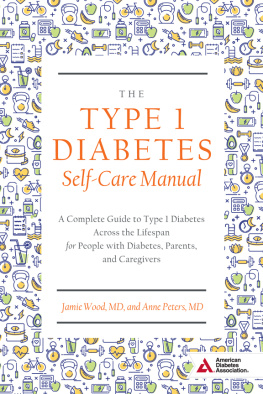
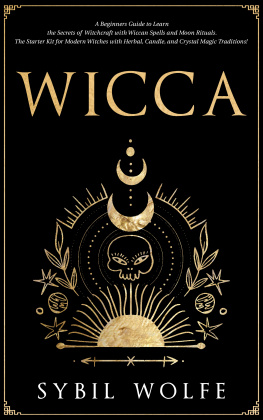
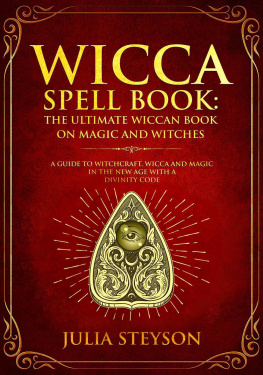
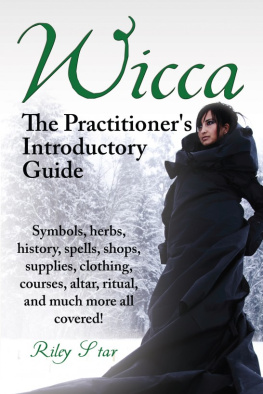
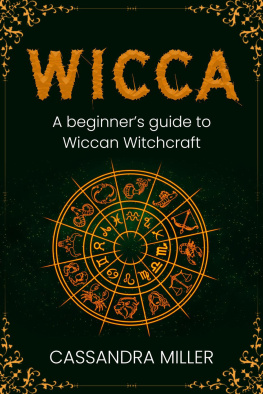
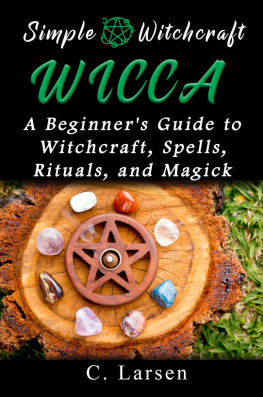
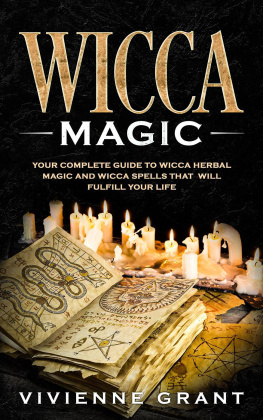
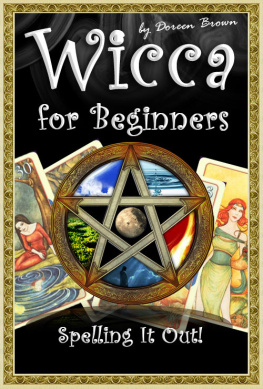
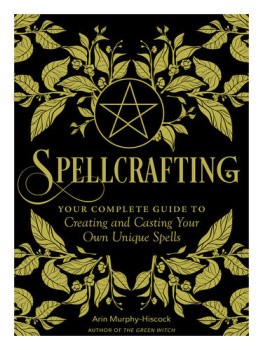
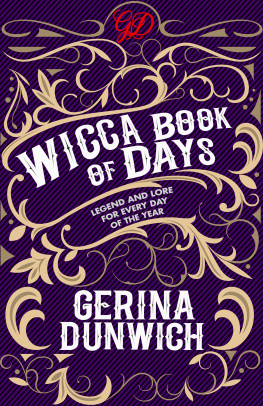
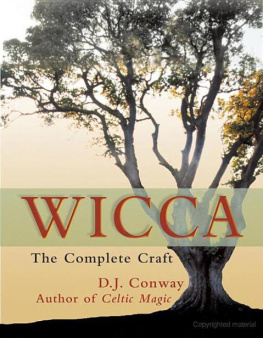
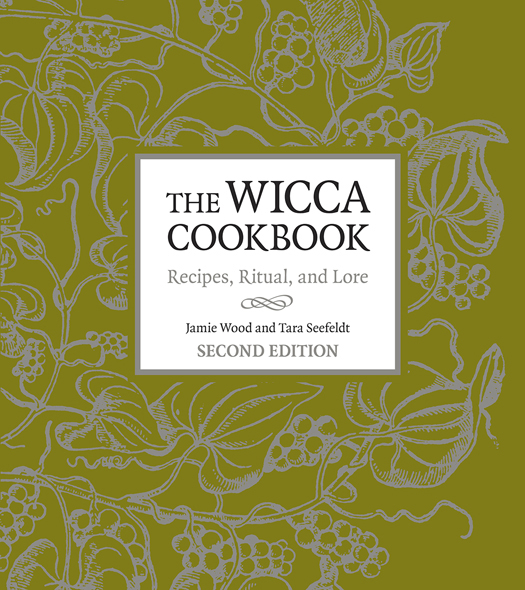
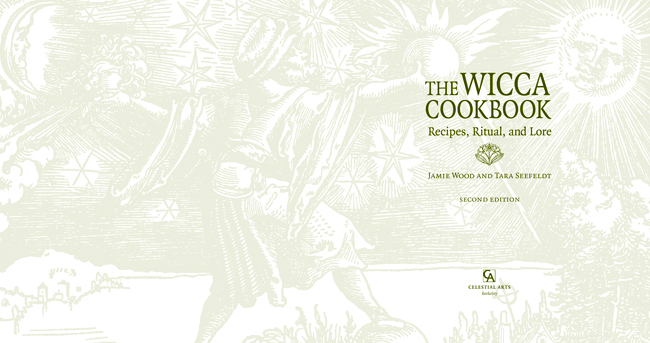

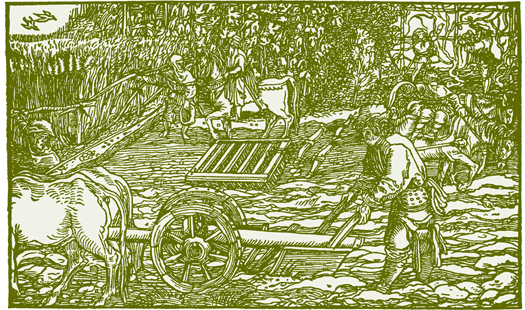
 ccording to ancient earth-based traditions, a deep-seated spirituality has always been a part of food preparation. When cooking is combined with a ceremonial significance, it transforms an ordinary task into an extraordinary connection with the Divine Source. Without requiring any commitment to Wicca and its beliefs, The Wicca Cookbook offers ways to celebrate and honor the divinity in nature and each of us.
ccording to ancient earth-based traditions, a deep-seated spirituality has always been a part of food preparation. When cooking is combined with a ceremonial significance, it transforms an ordinary task into an extraordinary connection with the Divine Source. Without requiring any commitment to Wicca and its beliefs, The Wicca Cookbook offers ways to celebrate and honor the divinity in nature and each of us.